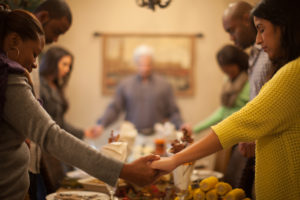Re:Verse passage –Exodus 20:13 (day four)
In today’s society, we have approached this command with a very pharisaical mindset. We have looked at the direct text and considered ourselves free from guilt because we have never killed. We justify our sins because they are “little” in comparison to murder.
Murder is an extreme reaction to a preexistent, sinful heart condition. Cain murdered Abel out of jealousy. David had Uriah murdered to cover up his adultery. If you read the biblical accounts of murder, most of them began well in advance of the act itself. Jesus lays this out for us in Matthew 5:21-26 as He talks about the connection of anger and murder. These “little” sins such as anger, malice, or jealousy left to fester in our heart lead us into extreme reactions. This isn’t always murder. Though these extreme reactions are abhorrent sins in their own right, we would never have gotten to that place if we would have checked our heart condition and become repentant of the “little” sins that are disrupting our relationship with the Father.
Rick Henderson
Associate Pastor, Youth

 Re:Verse passage –
Re:Verse passage –